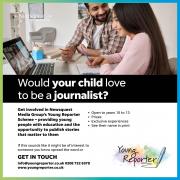
Artificial intelligence is when a machine is created to have the same thought processes and ability to learn and complete tasks as a human. It's used around us all the time by major tech companies like Google, Apple, Amazon, Spotify and Tesla, to name a few, for things that can vary from web searching to driverless cars. Nevertheless, we are surrounded by it from the moment we wake up.
There are ongoing debates on whether or not artificial intelligence is a good or bad thing and the effects it could potentially have in the future. There are many reasons to suggest Artificial Intelligence is a positive thing. Examples include, avoiding human error, as naturally humans are going to make mistakes but computers that are correctly programmed will allow us to get things right first time. Or the fact that humans are usually able to work roughly 8-10 hours a day but with technology, it can work for as long as it’s needed without getting tired. Facebook CEO, Mark Zuckerberg strongly believes artificial intelligence holds great hope for the future and said ‘if you’re arguing against AI then you’re arguing against safer cars that aren’t going to have accidents, and you’re arguing against being able to better diagnose people when they’re sick’ which helps show the variety of industries in which artificial intelligence could be hugely beneficial.
However there is also evidence that artificial intelligence will have negative impacts in the future. The biggest and most talked about issue is the problems with unemployment that it could create. It has already begun to have effects as seen by the employees of Fukoko Mutual Life Insurance in Japan when some of their employees recently lost their jobs to be replaced by artificial intelligence. With technology advancing rapidly, numbers could increase and employment could become a problem for my generation and others to come. Studies are predicting that in the next 5 years alone, 5.1 million jobs could be lost and replaced by technology.
In an analysis completed by a company named Mckinsey Global Institute, their results concluded that “45% of paid activities could be automated using ‘currently demonstrated technologies’ and . . . 60% of occupations could have 30% or more of their processes automated.”. These figures are actually lower than what's being suggested by other experts and If this were to happen it would still create a dramatic increase in job loss which could have drastic effects on the lives of young people in years to come.
Artificial intelligence is very relevant to younger generations everywhere in the world in this day and age and whether or not Artificial Intelligence is good or bad it is going to continue developing either way and discussions are now beginning on whether schools should be preparing students for the future by strongly encouraging STEM based subjects when in reality technology is continuing to become extraordinarily quicker and more accurate than the ability of a human. Should we be teaching young people things that are creative? something a computer can ultimately never be as computers can't show feelings, empathy or emotion. For example why teach languages when in the future you can have earpieces to translate the language for you. Instead why not learn about peoples cultures and creating an understanding of how they think to be able to understand the individuals themselves which allows you to communicate or do business much easier.
Whether people choose to look at artificial intelligence in a positive or negative light, the matter is not going to go away, so instead of evaluating pros and cons, it's time to start preparing for the action we are going to take in the future and how we should be teaching young people, like myself, to benefit at work alongside atricfical intelligence as it could help us to achieve things that otherwise would have taken years.



























